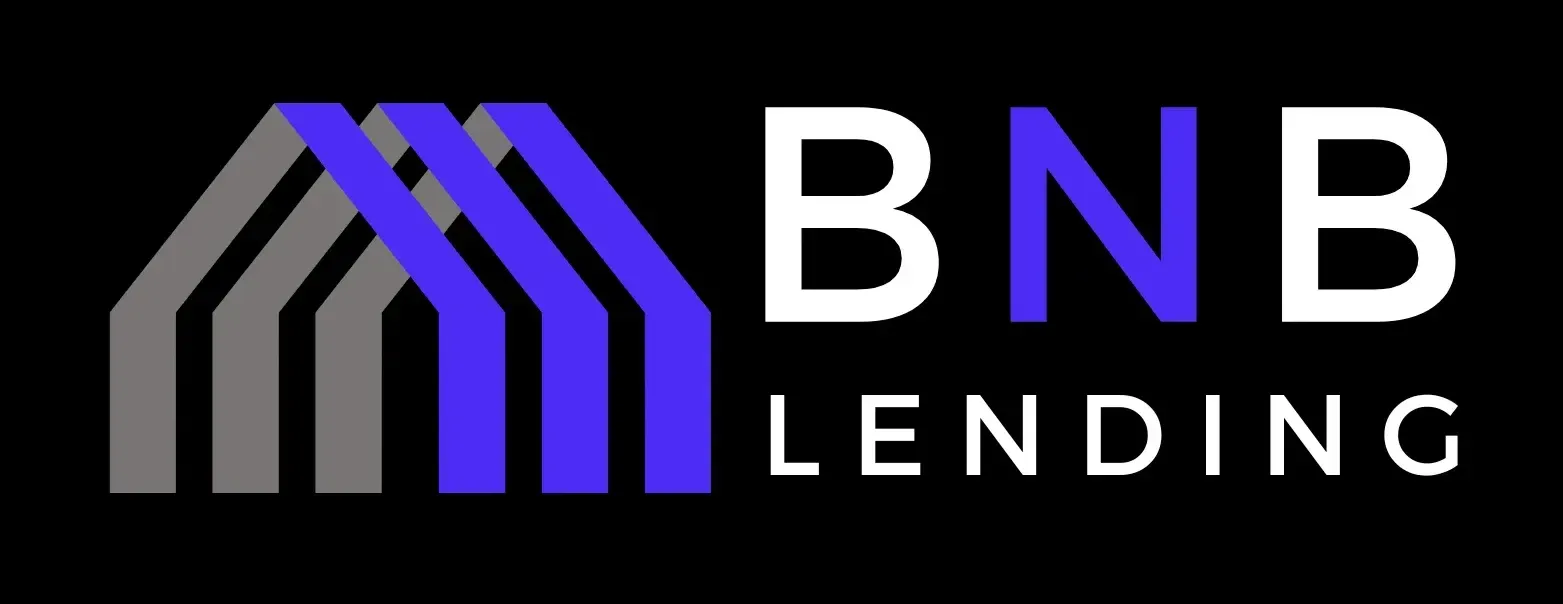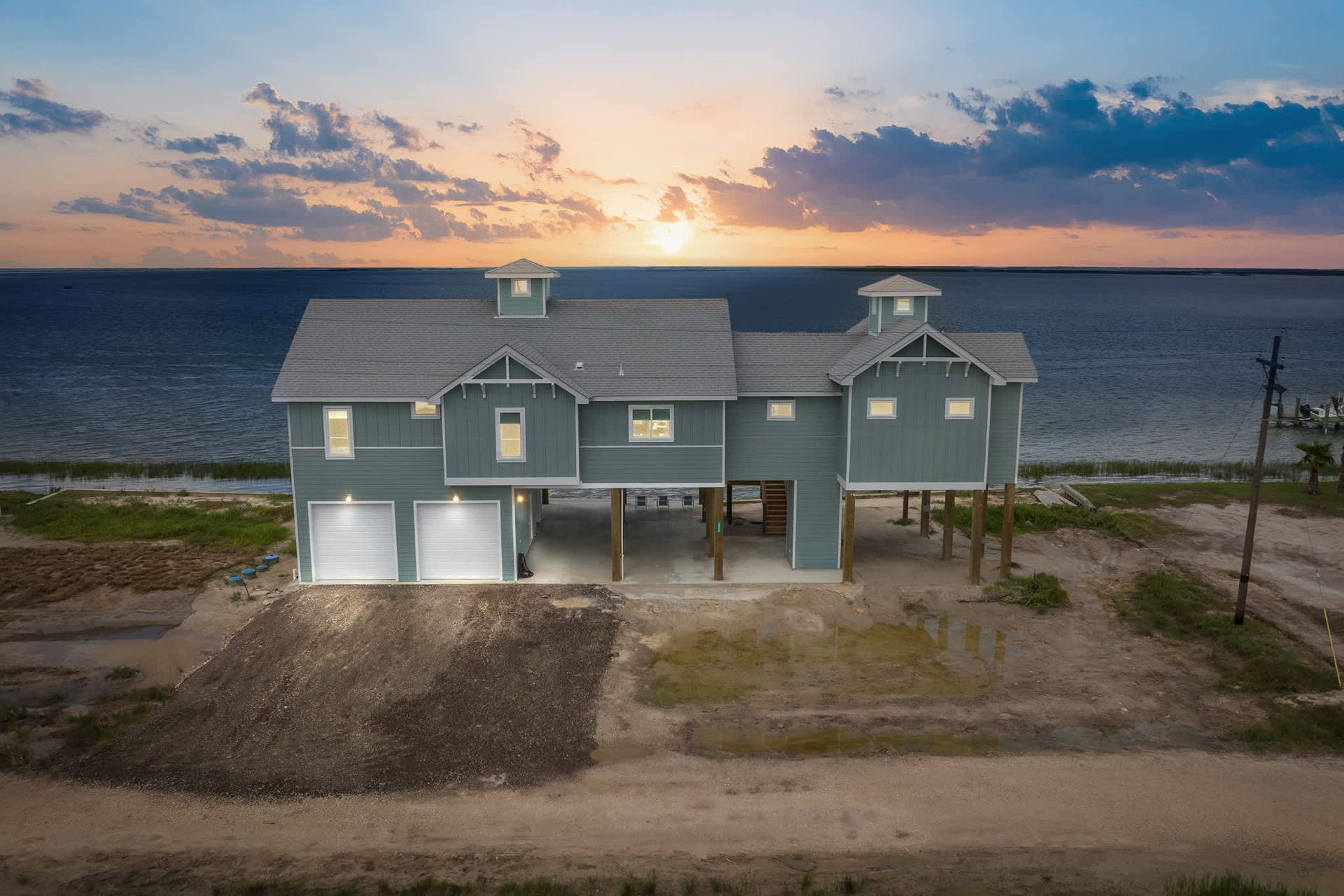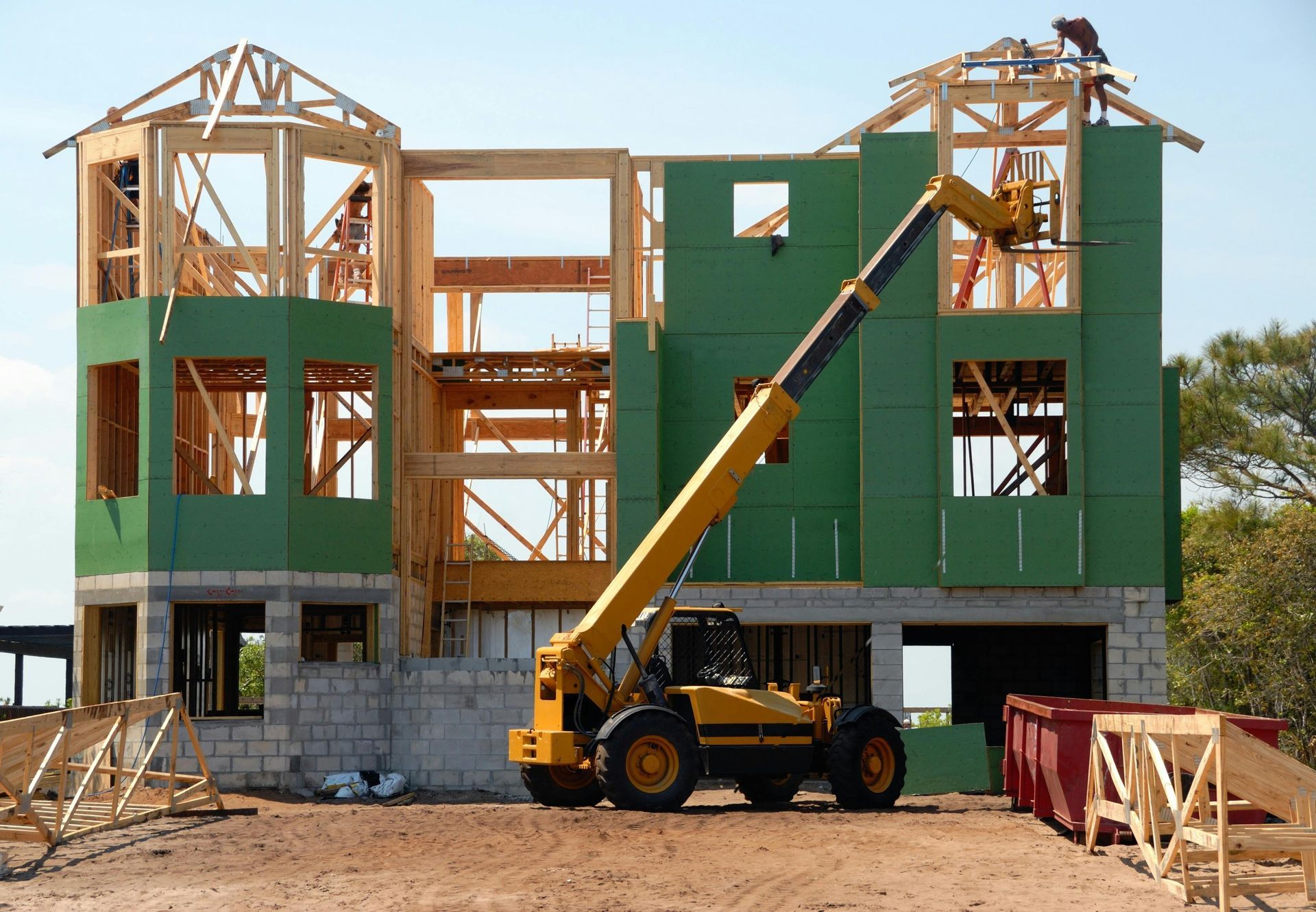Airbnb Loans: 9 Smart Financing Options for Short-Term Rentals
Airbnb Loans: 9 Smart Financing Options for Short-Term Rentals
Whether you're buying your first vacation rental or scaling a growing portfolio, how you finance that investment matters. Airbnb loans—also known as short-term rental loans—can fund everything from the purchase of a second home to furniture, renovations, or even refinancing. The key is understanding which loan aligns best with your goals, credit profile, and timeline.
This guide covers nine of the most relevant financing options for short-term rental investors today. These include traditional mortgages, DSCR loans, HELOCs, and more—mapped to real-world lending programs like those shown in your loan menu. We’ll also discuss use cases, requirements, and strategic tips to help you choose wisely.
Why Financing Matters for Vacation Rental Investors
Airbnb investing isn’t just about location or decor—it’s about numbers. Most successful hosts don’t start with hundreds of thousands in cash. Instead, they leverage financing to:
- Acquire their first or next property
- Renovate or furnish guest-ready spaces
- Tap into equity from an existing home
- Offset startup costs without depleting savings
Even experienced investors use financing to scale efficiently. With the right loan, you can control more assets, generate higher returns, and expand your portfolio faster than you could through cash purchases alone.
That said, not all loan types are created equal. Some are designed for quick flips or renovation-heavy properties, while others favor long-term ownership or business growth. Choosing the wrong type can erode profits or create repayment pressure before your listing is cash-flow positive.
Types of Airbnb Loans Available to Investors
Whether you’re starting your short-term rental journey or scaling your operation, understanding the loan types available can help you make the most strategic decision for your property, timeline, and income goals.
Below are the nine most relevant Airbnb loans for today’s investors—from traditional options to Airbnb-specific lending products:
- Traditional Loans – Best for buying an investment property with stable income and good credit.
- Second Home Loans – Best for part-time personal use and occasional Airbnb rentals.
- DSCR Loans – Best for qualifying based on rental income, not personal income.
- HELOC – Best for using home equity to fund renovations or down payments.
- Hard Money Loans – Best for fast deals on fixer-uppers or non-traditional properties.
- Private Financing – Best for flexible terms outside of conventional lending.
- STR Mortgage Loans – Best for Airbnb financing based on property income.
- New Construction Loans – Best for building a vacation rental from the ground up.
- Fix-n-Flip Loans – Best for buying and renovating properties quickly.
Let’s go into further detail on each of these:
1. Traditional Loan
A traditional loan—also called a conventional mortgage—is the most common path for purchasing an investment property. These loans are issued by banks or credit unions and often backed by Fannie Mae or Freddie Mac. For Airbnb investors with good credit and stable income, they offer predictable terms and long repayment windows.
Best For:
Buying a second home or investment property with long-term financing
Key Features:
- 15- or 30-year terms
- Fixed or adjustable interest rates
- Requires 20% down (sometimes more for non-primary homes)
- Minimum credit score: typically 620+
Pros:
Predictable payments, competitive rates, large loan amounts
Cons:
Long approval process, strict documentation, limited flexibility
Traditional loans are ideal when you're entering a stable market with solid income projections. However, they’re not designed for distressed properties or rapid renovations—other options are better for those use cases.
2. Second Home Loans
Second home loans are technically conventional loans, but they’re structured for borrowers who plan to occupy the property part-time. Many Airbnb hosts use this type of financing to buy vacation homes they also rent out when not in use.
Best For:
Hosts who plan to use the home personally for part of the year
How It Works:
- Occupancy required: You must stay in the home occasionally
- Typically lower rates than investment property loans
- Down payment starts at 10%, but 20% avoids PMI
- Often used in resort towns, ski areas, or coastal markets
Watch Out For:
Some lenders prohibit year-round rentals under this loan type. Misrepresenting use can trigger a loan recall or reclassification, so be transparent and stay within guidelines.
If you genuinely plan to use the property part-time, a second home loan can offer favorable terms—just make sure your rental plans align with lender rules.
3. DSCR Loan (Debt-Service Coverage Ratio Loans)
DSCR loans are tailored specifically for real estate investors and are one of the few loan types that look at property income rather than personal income. This makes them ideal for Airbnb hosts, especially those with multiple properties or who operate under an LLC.
Best For:
Renovating, furnishing, or purchasing income-producing short-term rentals
How It Works:
- Qualification is based on the property’s rental income, not your job or W-2
- DSCR = Net Operating Income ÷ Loan Payment
- Most lenders require a DSCR of 1.20 to 1.25
- Can be used by LLCs or individuals
Pros:
No income verification required, flexible ownership structures, good for scaling
Cons:
Higher interest rates than conventional loans, larger down payments (20–25%)
DSCR loans are a strong fit for investors who either don’t qualify for traditional loans or prefer to borrow in the name of a business entity. They work especially well for hosts purchasing a property with proven rental history—or those with detailed income projections and strong local comps.
4. Home Equity Line of Credit (HELOC)
A HELOC allows you to tap into the equity of your primary residence or another property to fund your Airbnb investment. Instead of receiving a lump sum, you get access to a line of credit you can borrow from as needed during the draw period.
Best For:
Using equity from an existing home to fund an Airbnb property or renovation.
Key Features:
- Typically offers a
10-year draw period, followed by a 10–20-year repayment term
- Interest-only payments during the draw phase
- You only pay interest on what you actually borrow
- Credit score requirement: usually 620+
Common Uses:
- Down payment on a new vacation rental
- Major renovations or upgrades to a current listing
- Emergency repairs or seasonal upgrades
Risks to Note:
HELOCs use your property as collateral, so failing to repay could jeopardize your home. Also, most HELOCs have
variable interest rates, which means your payments could increase unexpectedly.
For hosts with strong equity positions, a HELOC offers flexibility without the need to refinance. It’s especially useful when funding needs are staggered—like renovations or furnishing spread over several months.
5. Hard Money Loan
Hard money loans are short-term, asset-backed loans that prioritize the value of the property over the borrower’s financials. These are often used by real estate investors looking to act fast—especially in competitive markets or fixer-upper scenarios.
Best For:
Quick purchases, unconventional properties, or investors with limited credit history.
Fast Facts:
- Funded by private lenders, not traditional banks
- Typically 6–24 month terms
- High interest rates (8%–15%+), but fast approval
- Often require 25%–35% down
Use Cases:
- Buying distressed properties or non-conforming listings
- Short-term renovation before refinancing into a long-term loan
- Bridging a funding gap between deals
Considerations:
Because these loans are expensive and short-term, they’re not designed for long holds. You’ll need an exit strategy—either a refinance or sale—within a tight timeline.
Hard money loans are valuable tools when speed and flexibility matter more than cost. Just make sure your projected rental income or resale value supports the timeline you’re working with.
6. Private Financing
Private financing refers to loans sourced from individuals or private groups rather than banks. These loans offer speed and flexibility, making them a useful tool when traditional financing just isn’t available or isn’t the right fit for your investment strategy.
Best For:
Non-conforming deals, time-sensitive purchases, or investors with unconventional income documentation.
How It Works:
- Terms are negotiated directly between lender and borrower
- Can be structured creatively—interest-only, balloon payments, etc.
- No rigid underwriting or DTI requirements
- May be secured or unsecured, depending on the deal
Benefits:
Private loans can move fast—sometimes closing in days—and often require less documentation. This is especially valuable for investors who operate under an LLC or have non-W2 income streams that traditional lenders don’t fully understand.
Considerations:
Rates and fees vary widely and depend on your relationship with the lender, the risk level of the property, and the loan duration. Always get the terms in writing and ensure you have a clear repayment or exit plan in place.
Private financing is especially powerful when paired with deep market knowledge and a reliable lender. It’s a tool best used by confident, experienced investors—or beginners who’ve surrounded themselves with smart guidance.
7. Short-Term Rental (STR) Mortgage Loans
Short-term rental mortgage loans are designed specifically for Airbnb, VRBO, and vacation rental properties. These loans often account for rental income in underwriting, and many don’t require personal tax returns or income statements.
Best For:
Hosts seeking Airbnb-specific financing based on rental income, not personal income,
What Sets It Apart:
- Underwriting focuses on
property income, not personal DTI
- Suitable for properties already generating income—or projected to
- Designed with Airbnb regulations and business use in mind
This type of loan can help investors who’ve been turned down by banks due to unconventional income or who prefer to borrow under a corporate structure. BNB Lending, for example, offers short-term rental mortgage solutions that skip tax returns entirely and focus on what matters: income potential, liquidity, and FICO.
For investors with a clear rental plan and reliable projections, STR-specific loans simplify the process—and reflect how short-term rental businesses actually operate.
8. New Construction Loans
New construction loans give investors access to capital for building a short-term rental from the ground up. Whether you’re planning a mountain cabin, desert casita, or urban ADU, this loan bridges the gap between land acquisition and final occupancy.
Best For:
Ground-up projects with detailed plans and builder agreements.
What to Expect:
- Loan is disbursed in
phases, based on construction milestones
- Typically interest-only during construction
- Must refinance into a long-term mortgage upon completion
Challenges:
Lenders often want to see architectural plans, permits, and licensed contractors before approving the loan. You’ll also need to demonstrate that the finished property will qualify as a viable Airbnb under local zoning laws.
For experienced investors—or those partnering with a builder—new construction loans unlock opportunities in undersupplied short-term rental markets.
9. Fix-n-Flip Loans
Fix-n-flip loans are short-term loans used to purchase and renovate a property quickly—usually with the intention of either reselling or converting to a rental. These are especially helpful for Airbnb hosts who find undervalued homes in strong rental markets.
Best For:
Buying, renovating, and quickly renting or refinancing a distressed property.
Fast Facts:
- Term: usually 6–12 months
- Based on
after-repair value (ARV), not current condition
- Can fund both purchase and renovation costs
Key Advantage:
These loans move fast and fund quickly, making them a solid choice for seasoned hosts looking to increase ROI through value-add improvements. Once the property is stabilized, many investors refinance into a DSCR or STR loan.
If you’re comfortable managing a renovation timeline and budget, fix-n-flip loans can turn a run-down house into a premium listing—fast.
Choose the Loan That Matches Your Strategy
Not every Airbnb investment needs the same loan—and that’s the point. Whether you’re buying your first short-term rental or expanding a high-performing portfolio, the best financing choice depends on your goals, property type, and income profile. The right loan can make the process easier, more profitable, and far less stressful.
At
BNB Lending, we understand that most investors don’t fit the traditional borrower mold. Tight timelines, non-W2 income, and LLC-owned properties aren’t the exception—they’re the norm. That’s why we focus on fast approvals, flexible programs, and common-sense underwriting that evaluates the
property’s potential—not just your personal finances.
Airbnb Loan Comparison Table
| Loan Type | Best For | Typical Term | Key Advantage | Common Requirements |
|---|---|---|---|---|
| Traditional Loans | Long-term financing with strong credit | 15–30 years | Predictable payments, low rates | 620+ credit, W-2, 20% down |
| Second Home Loans | Part-time personal use + rental income | 15–30 years | Lower rates for partial occupancy | 640+ credit, personal use needed |
| DSCR Loans | Income-based financing for rentals | 5–30 years | No income docs, based on property income | DSCR ≥ 1.20–1.25, 20–25% down |
| HELOC | Using equity for upgrades or down payments | 10–20 years | Flexible access to equity | 620+ credit, 15–20% equity |
| Hard Money Loans | Speed and flexibility for unique deals | 6–24 months | Fast funding for non-standard properties | High equity/down, ARV projections |
| Private Financing | Creative, relationship-based lending | Varies | Negotiable terms and faster closings | Flexible, trust-based |
| STR Mortgage Loans | Airbnb-focused income-based underwriting | 15–30 years | No tax returns, tailored for STRs | Property cash flow + FICO/liquidity |
| New Construction Loans | Ground-up builds or ADUs | 6–18 months | Staged funding for construction projects | Permits, builder, exit plan |
| Fix-n-Flip Loans | Reno-to-rent or reno-to-sell strategies | 6–12 months | Covers purchase + renovation costs | Exit plan, rehab scope, ARV |
If you're ready to scale with clarity, we’d love to help. Whether it’s a DSCR loan, STR mortgage, or fix-and-flip deal, we offer financing that meets investors where they are—no red tape, no guesswork.
Before you choose a path, review the summary table below. It compares each Airbnb loan type side by side so you can quickly identify which one aligns best with your investment strategy:


